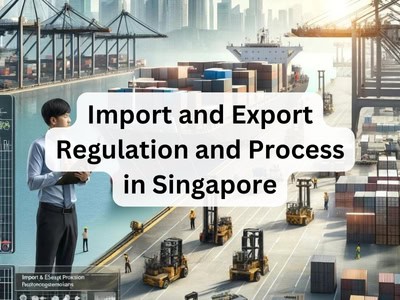This post is also available in:
![]() 简体中文 (Chinese (Simplified))
简体中文 (Chinese (Simplified))
What Every Foreign Trader Should Know Before Trading in the World’s Most Sought After International Business Hub
Before trading in Singapore, it helps to have a thorough understanding of the import and export regulation and process in Singapore.
How the Import Process Works
 In Singapore, all imported goods are regulated by three acts. These acts are:
In Singapore, all imported goods are regulated by three acts. These acts are:
- The Customs Act
- The Goods and Services Tax (GST Act)
- Regulation of Imports and Exports Act
Goods that are brought into the country will be subject to GST and/or other duty payments. You will need a permit for your records. Only certain goods will incur both the cost of GST and additional duties. These goods are:
- Petroleum
- Tobacco
- Any liquors that are intoxicating
- Motor vehicles
GST is imposed on all other non-dutiable goods. The GST percentage is levied at 7% of the insurance, cost, and freight value. If the good are dutiable, this will be included in the cost. Other charges may also occur, although it might not be shown in your invoice. These include cost, charges, and expenses that are incidental to the delivery and sale of the goods.
It is very important that you comply with the requirements in the specified acts. Failure to do so could result in penalties and it is considered an offence. You could be fined no more than S$5,000 per offence if found guilty. Always double check your details and be sure to declare all your goods. You must be able to produce the required documents when asked by the Singapore Customs.
How the Import Process Works
Before exporting any goods out of Singapore, you must apply for all the relevant permits. Applications are submitted to the relevant Customs department. GST is not levied of exported goods. Duties don’t apply here either.
As the exporter, you will need to issue a commercial invoice for your overseas customers. A third party could be declared as the exporter. This third party would be the party responsible for taking the goods out of the country. The third-party might declare themselves as the exporter in the two following situations:
- They are acting as a consolidator for any customers who don’t have a UEN.
- They are willing to declare themselves on the commercial invoice given to the overseas customer.
As the exporter, you will also need to declare the Free on Board (FOB) value of the exported goods. This must be on the permit application. You will need a permit from customs for the following:
- The goods are dutiable and originate from a licensed warehouse.
- The goods are non-dutiable from a warehouse that is zero-GST.
- The goods fall under the Major Exporter Scheme.
- The goods are locally manufactured.
- The goods originate from the Free Trade Zone (FTZ).
- The goods are re-exported under the Temporary Import Scheme.
- The goods are temporarily exported and will be re-imported.
If your goods are controlled under the Strategic Goods (Control) Act, you will need a permit.
You will need to abide by the regulations because failure to do so is considered an offence. Just like the import regulation and process, penalties will apply if you don’t fulfil all the necessary conditions. Double-check your information and make sure all the goods declared are correct. You must be able to produce the required documents upon request by the Singapore Customs.



